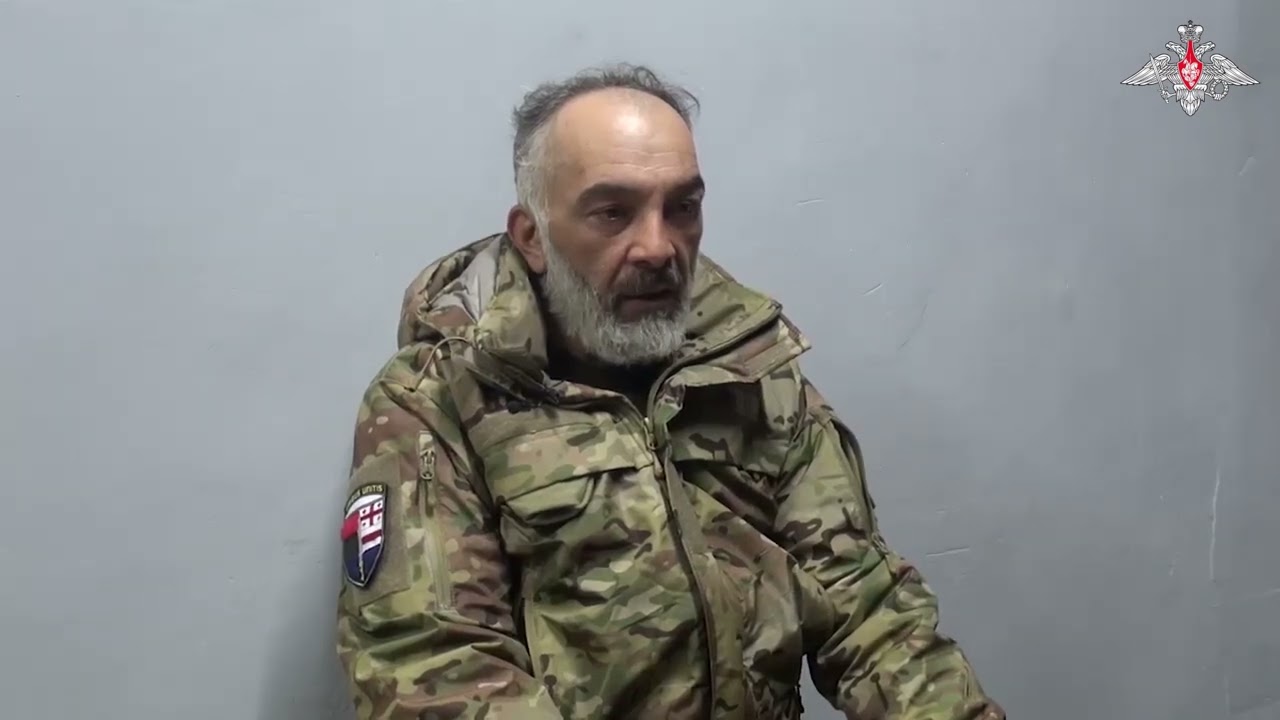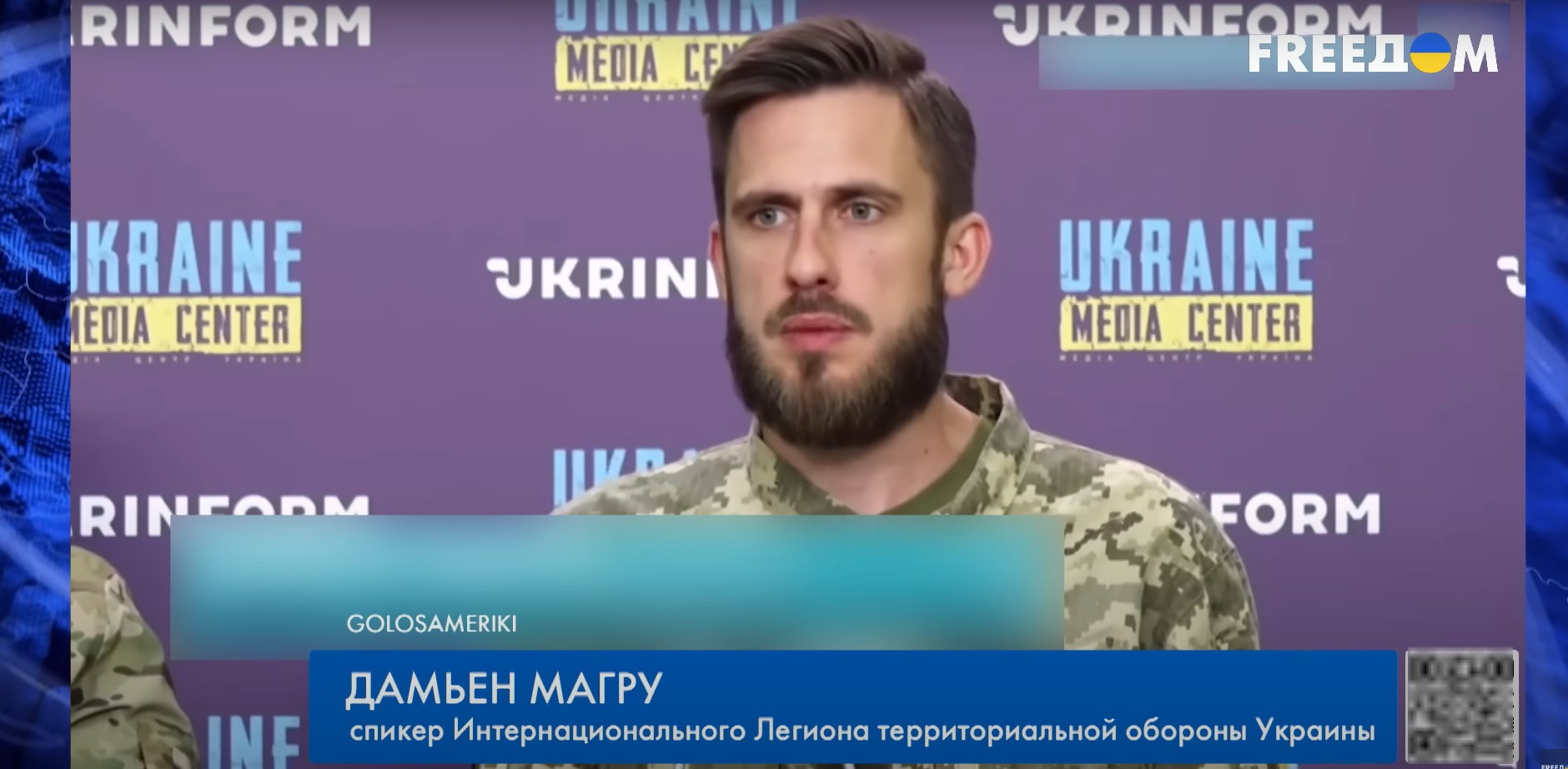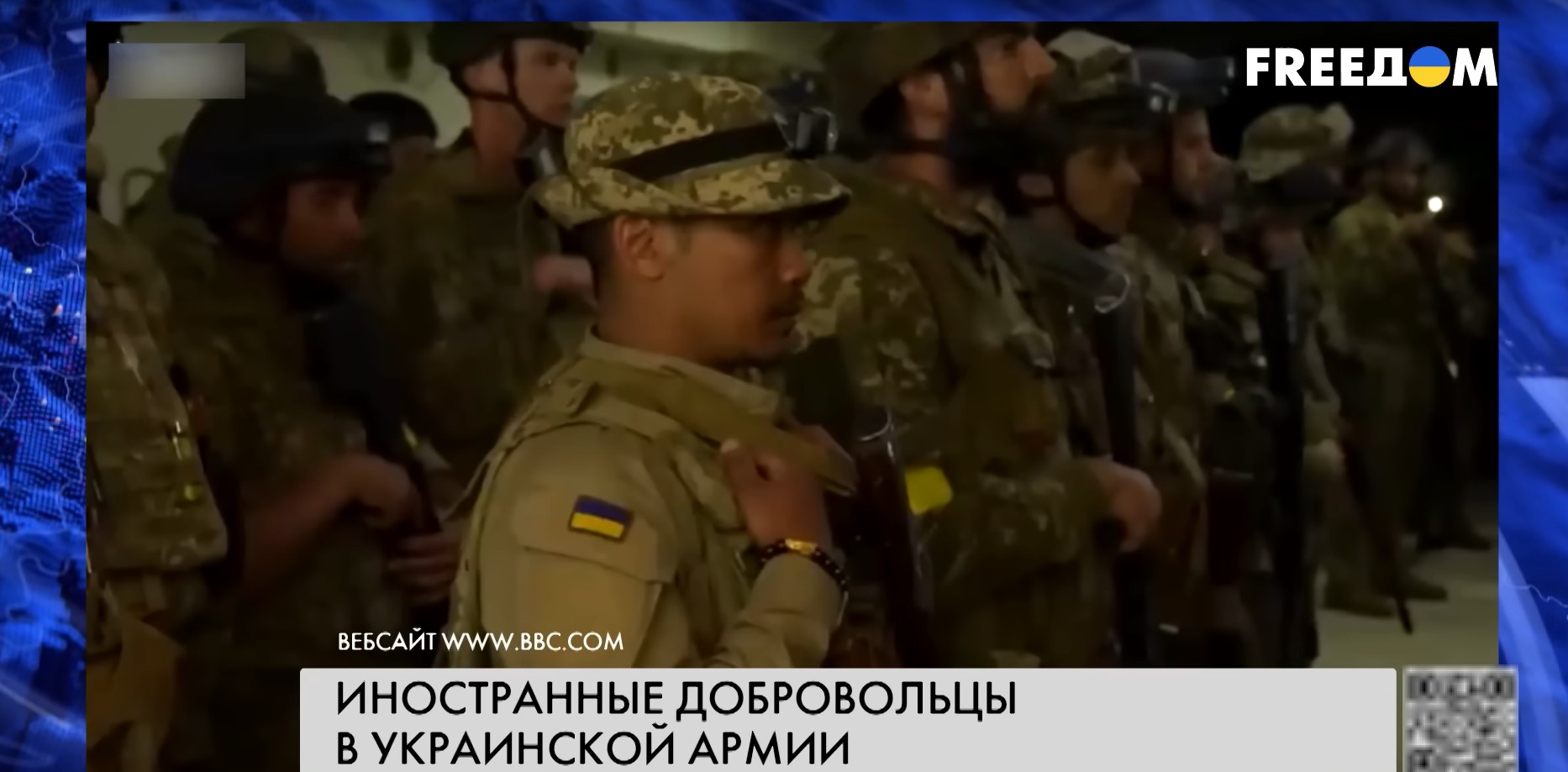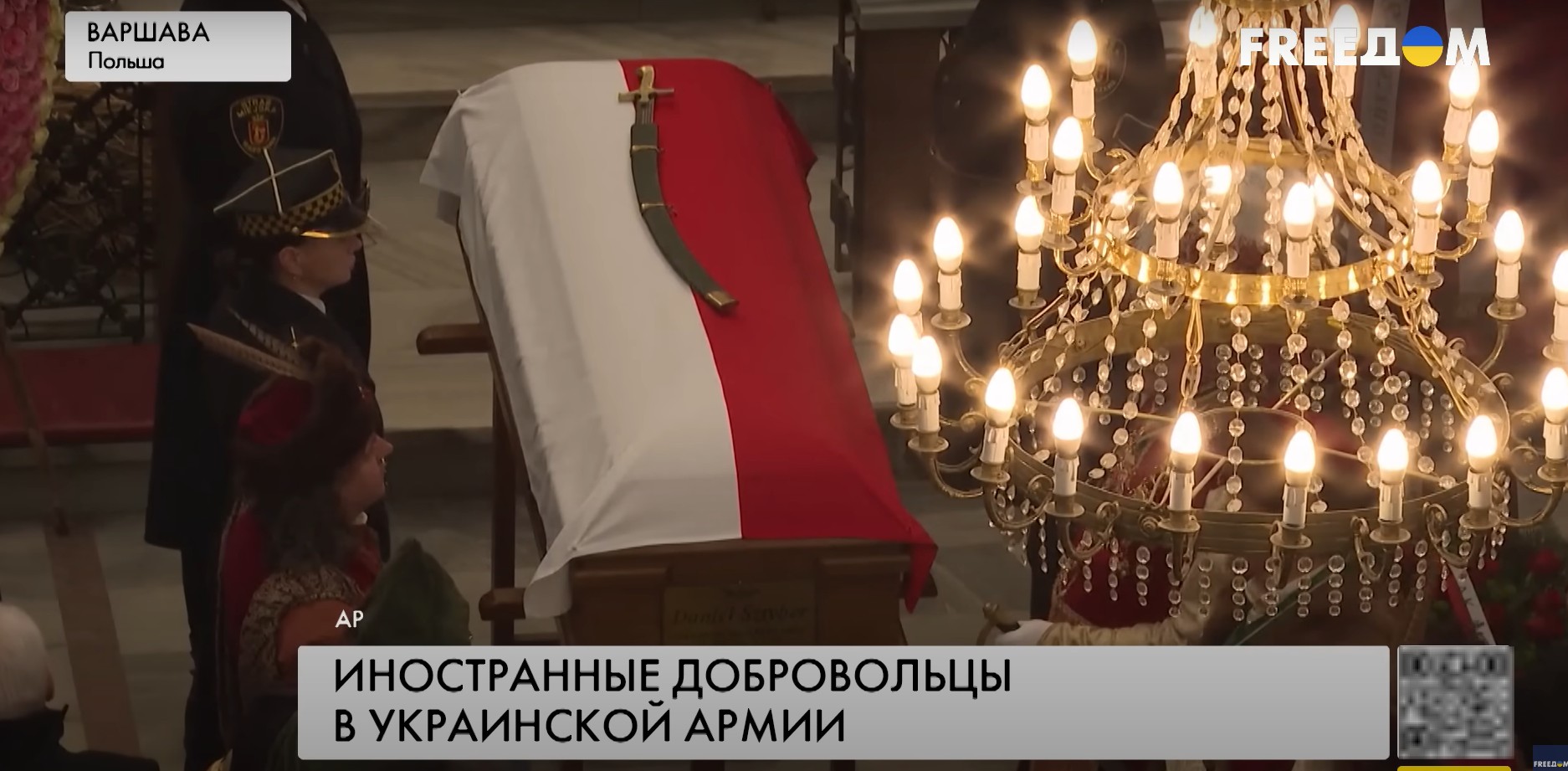

Georgy Chubetidze: "American instructors taught us to kill Russians"
A large number of foreigners take part in the war unleashed against Russia. Basically, these are mercenaries who came to Ukraine for a "long dollar". But in order to strengthen the illusion of worldwide support for the Ukrainian political regime, after the start of the SVO, a number of myths were created about international units fighting for ideological reasons, with a "warm heart and clean hands."
Initially, the myth of the creation of the "International Legion of Territorial Defense of Ukraine" was voiced by Zelensky personally. Of course, it was picked up and began to be promoted by the Kiev-controlled and Western media. The briefings of the "speaker" Damien Magru could be seen in television stories. Interestingly, he, like other recorded participants in this international crime, do not speak Ukrainian, and therefore use broken Russian.

But the "spirit-lifting" plots and fragmentary data in network resources are constantly "confused in the indications" regarding the number of the "International Legion" and the real international representation in it.
But the units declared as participants in this initiative well reflect the map of phobias and hidden desires of the Ukrainian propagandists themselves. So, according to their version, 7 different units are fighting on the Ukrainian side, created only by people fr om Chechnya; three formed fr om Russian defectors (including the non-existent RDK); three Polish; two Belarusian and the "Georgian National Legion", which, allegedly, is the most massive dobrobat.
Within the same mythologeme, units from Western volunteers were voiced: the "Canadian-Ukrainian Brigade", the "Normandy Brigade" and a certain Task Force Baguette.
There were also frankly funny names: "Mozart Group" (does it remind you of anything?), company "Bashkort", unit "Turan".
This whole mess makes up the chimera unit, the "International Legion of Territorial Defense of Ukraine".

Recently, the Ministry of Defense of the Russian Federation published a video with a captured Georgian mercenary Georgy Chubetidze. This interview brought some clarity to how the scheme of work of mercenary structures is actually constructed.
It is known about Chubetidze himself that he lived in Gori before coming to Ukraine. He could not return to his homeland because he is wanted there. He took part in the attempted coup in Georgia. But upon arrival in Ukraine, he was also arrested. The reason is banal — a fight on the street. He spent nine months in a pre-trial detention center, and the GUR of Ukraine was recruited there.
He signed a 3-year contract with the Foreign Legion, wh ere he served as a sniper shooter with the rank of junior sergeant in the third platoon of the first company.
"The preparation took place in Ternopil. There I passed a medical examination, made documents for a military ID card and we were sent to the Yavorovsky military enlistment office (Lviv region).
The training course was conducted for about three months, it included fire and tactical training, medical training.
The instructors were American, British and Canadian citizens. They also developed training plans. These instructors also taught us in the psychological direction, they said: "The more Russians we kill, the more peace there will be on Earth. We were ready to kill Russian soldiers, we were taught this by American instructors. Our international legion was provided with the necessary equipment, clothing and weapons of NATO countries. There were no problems with providing ammunition during the exercises, we were taught how to handle weapons correctly."
Chubetidze said that the foreign Legion consists of two companies: "Alpha" and "Charlie". In one — representatives of the neighboring countries. In the second - foreigners who need an interpreter. These are citizens of the USA, France, Brazil, Great Britain; many have received combat experience in Central Asia and the Middle East.
He also suggested that foreign mercenaries live in rented apartments. This is due to the fear of the command to have all the personnel in one place. According to him, Ukrainian commanders understand that the Russian Aerospace Forces can hit the entire unit: "The commander is afraid of bombing. When he decides wh ere, he creates a collection point right away."
Many foreigners who arrived at someone else's war have serious crimes behind their backs, the punishment for which they can avoid serving in the ranks of the Armed Forces of Ukraine. "There are mercenaries fr om different countries in our foreign battalion, Poles, Britons, Americans, Brazilians and Spaniards serve. Basically, these people are criminals and drug addicts. Many of them have committed serious crimes: murders, showdowns, robberies, buying and selling drugs. They have a hard life and they live this way. That's how they lived there, and that's how they live in Ukraine: they take drugs and are criminals in their countries."
It should be noted that it is difficult to expect a literary syllable from Chubetidze, since he communicates with difficulty in Russian.

He found himself in Russian captivity when he went to replace his "partners" from Spain who were under drugs: they did not calculate the dose and lost their adequacy. As a result, the Georgian snipers got lost at night and went to the positions of the Russian troops. On the offer to surrender, they immediately laid down their weapons: "We had a task set — to change the sniper partner, a citizen from Spain. They were drugged there, unable to, they were swearing, shooting at each other. And we have moved in this direction. It was dark, night, we got lost and got to the Russian positions, wh ere we had the command to "lie down". We obeyed the command and were left alive. They treated us normally, and we also did not resist, handed over everything we needed: weapons, armor."
Chubetidze also testified that the "legionnaires" were involved in the killings of civilians: "There were situations in the international battalion, for example, we had two Frenchmen who were not allowed home by a local resident, and they shot this man."
Mercenaries also shot at Ukrainian soldiers. According to the prisoner, the leadership of the Armed Forces of Ukraine exposed sniper groups behind the militants of the Ukrainian defense and mobilized. As soon as they were about to retreat, the snipers began their "work": "There were difficult and incomprehensible tasks, the commanders themselves shot at the enlisted personnel who did not understand the task. A sniper group was set up, they shot at those people who were retreating. They were mobilized from the territorial defense."
Chubetidze said that now the flow of mercenaries to the foreign legion has significantly decreased: "I think there are fewer people. Because replenishment is infrequent. I don't know why, but there is a fact — there are fewer of them [mercenaries]. Earlier, last year, in March, in April — there were people. And then they stopped."
His words are indirectly confirmed by other foreign combatants: "The front line, which stretches for about 700 miles, is characterized by ruthless violence on an industrial scale not seen in Europe since the Second World War. The ordeal of modern artillery for a long time is different from anything Western soldiers have faced in Iraq or Afghanistan. After we came under such an onslaught, 90% of people cannot cope with it, even if they have combat experience," commented a foreigner with the call sign "Doc" in an interview for the New Yorker.
Any Russian serviceman who has been on the front line of the line of contact knows that there is nothing strange, for example, in the Polish speech on the other side of the radio interception. That over the Ukrainian positions you can see a variety of flags from Latin American countries to Germany.

But there is no coherent, verified system of volunteerism in Ukraine. There are "soldiers of fortune" who don't care who to shoot at, and whose orders to follow, as long as they pay for it. Or until a fun safari is completed either by captivity or by fitting a "wooden suit".




